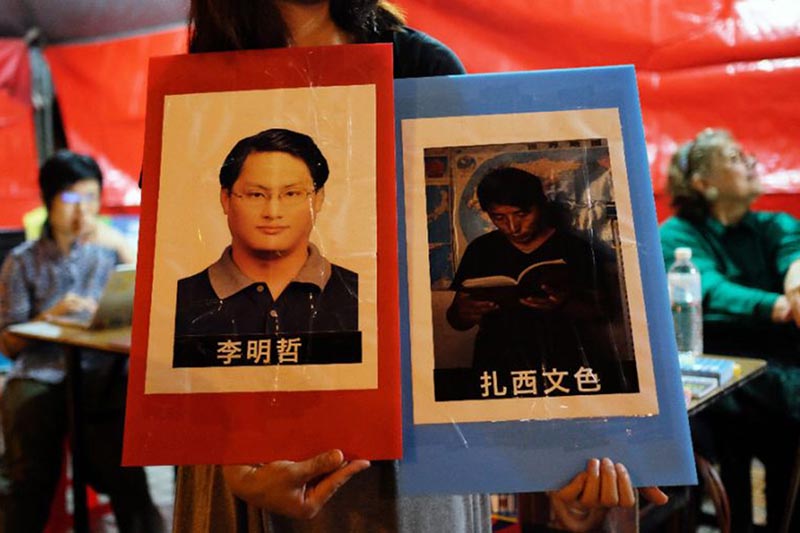Tibetet Segítő Társaság Sambhala Tibet Központ
Tibet Support Association Sambhala Tibet Center
székhely / telephely H-Budapest I. Attila út 123..
(00-36) 70 431 9343 (00-36)70 944 0260 (06-1)782 7721
sambhala@tibet.hu www.tibet.hu tibetpress.info
Facebook/Sambhala Tibet Központ Facebook/Tibett Segítő Társaság
MagnetBank/ 16200010-00110240
IBAN/HU94 16200010 00110240 00000000 SWIFT/HBWEHUHB
(1%) adószám/ 18061347-1-41
nyitva tartás/hétköznap 12.00-20.00 hétvégén előadás függő
» tibeti művészet» lapszemle.hu» thetibetpost.com» eastinfo.hu» rangzen.net» ChoegyalTenzin» tibet.net» phayul.com» DalaiLama.com» vilaghelyzete.blogspot.com» Videók» Linkek» TibetiHírek» Szerkesztőség
China puts Tibetan language advocate on trial for subversion/ENG
2018. január 4./AFP/Tibet Sun/TibetPress
eredeti cikk
A Tibetan who has waged a campaign to preserve his region’s ancestral language was put on trial in China for inciting separatism Thursday in a case Amnesty International denounced as “ludicrously unjust”.
Tashi Wangchuk was featured in a New York Times documentary that followed him on a trip to Beijing, where he attempted to get Chinese state media and courts to address what he describes as diminishing use of the Tibetan language.
Wangchuk was put on trial at the Intermediate People’s Court in Yushu, his hometown in a Tibetan area of northwestern China’s Qinghai province.
The charge can carry a sentence of up to five years, but Wangchuk’s lawyer Liang Xiaojun said prosecutors were expected to seek even more jail time.
Wangchuk pleaded not guilty, and the trial did not come to a verdict on Thursday.
But nearly every case that goes to trial in China — especially on sensitive state-security issues — ends with a guilty verdict.
“He doesn’t believe he’s incited separatism. He only wants to strengthen Tibetan language education,” Liang said.
Wangchuk has been detained in Yushu since January 2016, not long after the New York Times published its story and documentary video about his activism, according to the Times.
Liang said the short documentary was “the most important evidence” used by the prosecution.
In the video, Wangchuk complained of a “systematic slaughter of our culture”.
“In politics, it’s said that if one nation wants to eliminate another nation, first they need to eliminate their spoken and written language,” he said.
In the Times’ stories Wangchuk notably says he wants to use Chinese law to build his case, and praised President Xi Jinping.
Beijing says it “peacefully liberated” Tibet in 1951 and insists it has brought development to a previously backward region.
But many Tibetans accuse the Chinese government of exploiting the region’s natural resources and encouraging an influx of China’s majority Han ethnic group that critics say is diluting the native culture and Buddhist faith.
China’s constitution protects free speech but critics say in reality there is little room for voicing any opinions that challenge government policies, and rights groups have accused Xi’s government of an escalating crackdown on expression.
Amnesty International said it was “appalling” that Wangchuk could face jail time.
“These are blatantly trumped up charges and he should be immediately and unconditionally released,” Amnesty’s East Asia Research Director Roseann Rife said in a statement.
Maya Wang, a researcher at Human Rights Watch, said Wangchuk was merely exercising his constitutionally guaranteed rights.
“If Chinese authorities consider that ‘inciting separatism’, it’s hard to tell what isn’t,” Wang said.
The documentary ends with Wangchuk discussing the many Tibetans who have self-immolated in protest at China’s policies over the years, while adding what he would do if he is “locked up or they force me to say things against my will”.
“I will choose suicide,” he said.
